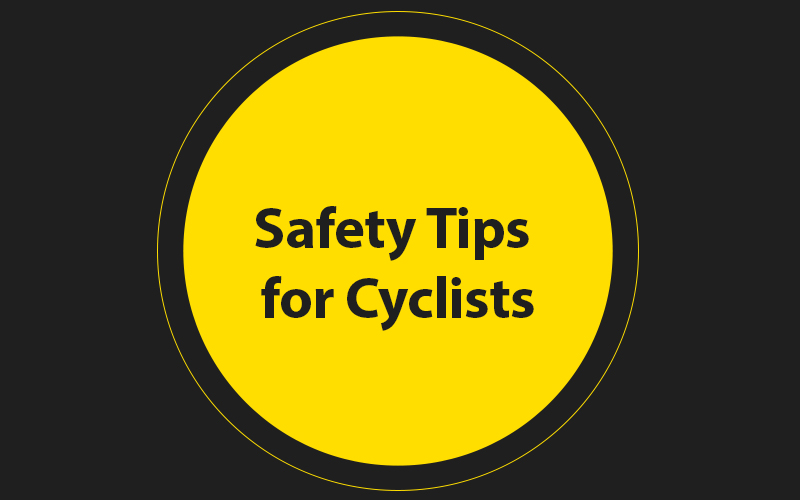Competitions are well organized and there is careful attention to safety details – it is however during training that cyclists must deal with the dangers caused by other road users, harsh conditions of nature and the perils of bad road conditions.
The following tips will enhance cycling safety:
- Always ensure that your bike is in good repair.
- Always wear cycling helmets to prevent head injuries. Head injuries cause a high percentage of all cycling deaths – much of which can be prevented by wearing a helmet.
- Replace any damaged helmets for maximum protection. Helmets must fit properly to be safe. When the straps and comfort pads are adjusted, the helmet should not move forward, backward, or come off. It should sit level on the head and extend down to about two fingers (3 cm) above the eyebrows. Chin straps should be snug without pinching, and the front and rear straps should meet just below each ear when tightly adjusted.
- Helmets only work once. If a helmet has been in a collision that required the inner lining to absorb shock, buy another one! Even though the damage may not be visible, the shock absorbing qualities may be deadened.
- Wear eyewear to protect eyes from dirt, wind and bugs.
- Wear reflective and fluorescent clothing suitable for the weather and time of day that will help other road users to see you.
- Obey the rules of the road and know what each traffic sign means.
- Ride with the flow of traffic, not against it.
- Watch out for surface conditions like potholes and debris.
- Never ride your bike through puddles, there may be hazards hidden beneath the water that you can’t see.
- Allow ample time to inform vehicles behind of your intention to turn either left or right with hand signals.
- Keep both hands on the handlebars unless signalling.
- Avoid swerving left and right on the road, ride in a straight line.
- Avoid speeding behind a moving vehicle, if it brakes sharply there could be a collision.
- Pedestrians should be given priority always, remember that some of them may be partially sighted or deaf and may not be aware of your presence.
- Avoid carrying any load that will affect your balance and centre of gravity.
- On hot summer days, wear sunscreen and carry water to prevent dehydration.
Cyclists are encouraged to wear an emergency bracelet. There have been several cyclists that owe their lives to the fact that they were wearing an identification bracelet or some other means of identification. This is very important info for medics to have when treating an injured cyclist as they are often unconscious or incoherent in an accident.
Source: http://www.arrivealive.co.za
24/7 Security Services – info@24-7security.co.za / 011 444 2237

